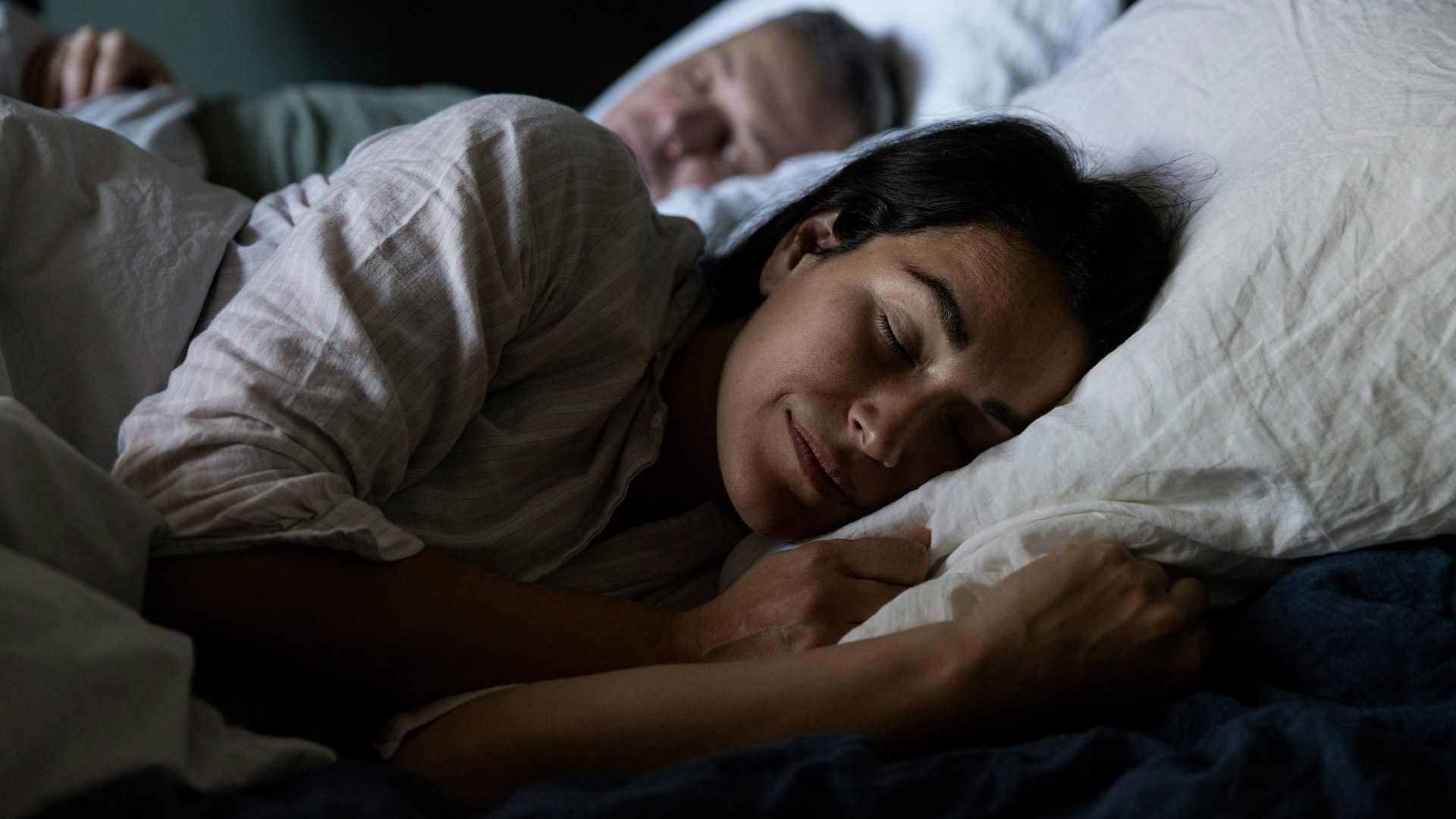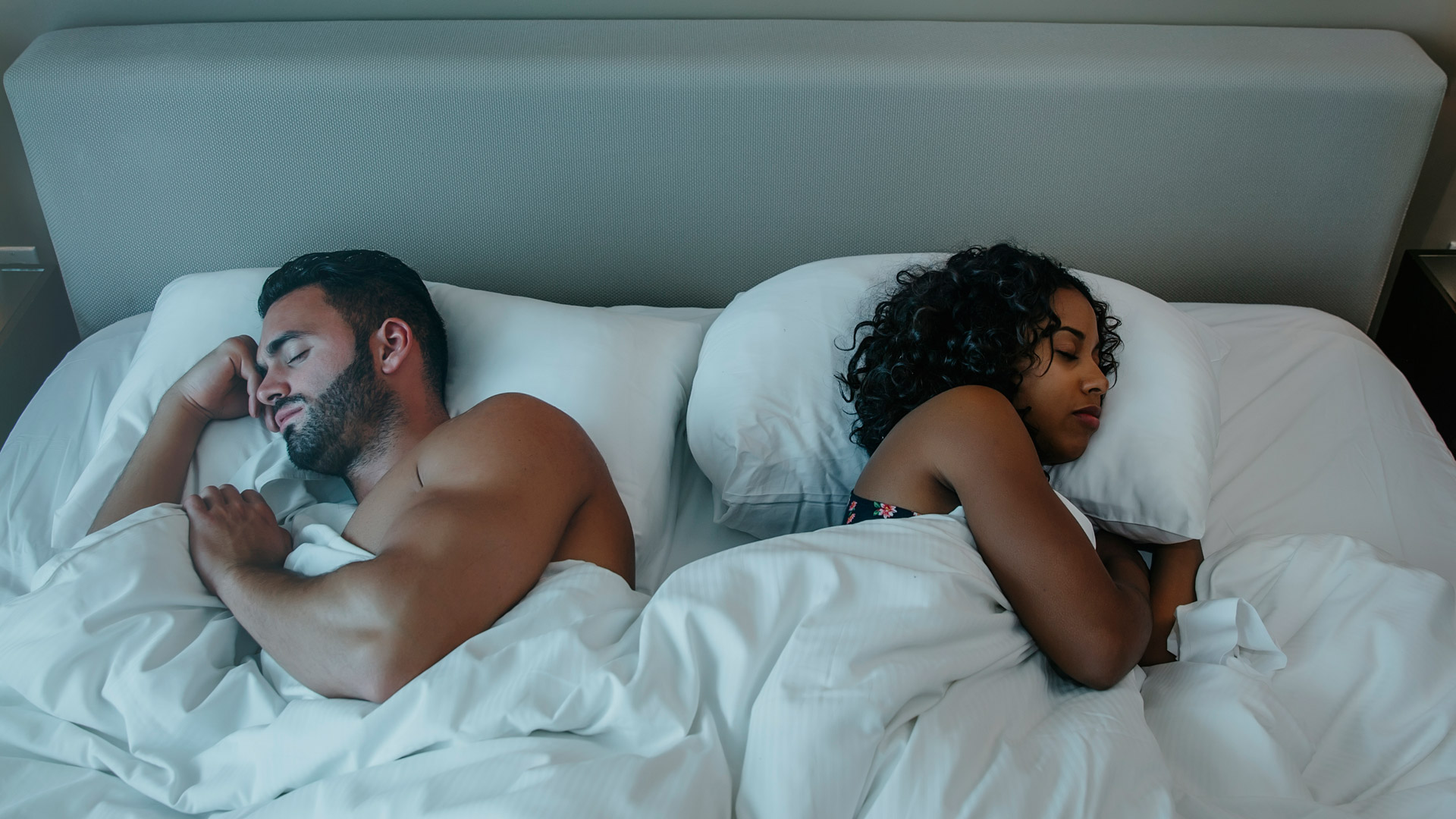This is the exact time Americans fall asleep — but here's how to find the 'right' bedtime for you
A new survey has revealed the average time Americans nod off — we've spoken to an expert to find out more about the importance of bedtime

Here at Tom’s Guide our expert editors are committed to bringing you the best news, reviews and guides to help you stay informed and ahead of the curve!
You are now subscribed
Your newsletter sign-up was successful
Want to add more newsletters?

Daily (Mon-Sun)
Tom's Guide Daily
Sign up to get the latest updates on all of your favorite content! From cutting-edge tech news and the hottest streaming buzz to unbeatable deals on the best products and in-depth reviews, we’ve got you covered.

Weekly on Thursday
Tom's AI Guide
Be AI savvy with your weekly newsletter summing up all the biggest AI news you need to know. Plus, analysis from our AI editor and tips on how to use the latest AI tools!

Weekly on Friday
Tom's iGuide
Unlock the vast world of Apple news straight to your inbox. With coverage on everything from exciting product launches to essential software updates, this is your go-to source for the latest updates on all the best Apple content.

Weekly on Monday
Tom's Streaming Guide
Our weekly newsletter is expertly crafted to immerse you in the world of streaming. Stay updated on the latest releases and our top recommendations across your favorite streaming platforms.
Join the club
Get full access to premium articles, exclusive features and a growing list of member rewards.
Whether you've stuck to the same bedtime for years, or found that it's varied as you've dealt with the changes life can throw at us (like changing jobs, having kids, or health issues), you may have wondered how yours compares to everyone else.
Well, now you can find out: a new survey has revealed the average time Americans fall asleep, as well as the time people begin their bedtime routines and when they actually make it into bed. The research even reveals how many mornings a week people regret late nights, and what tends to keep them up.
Here, we delve deeper into the survey findings, and speak to Heather Darwall-Smith, a UKCP psychotherapist specializing in sleep and neurodiversity, and author of How to Be Awake, to find out whether there is, in fact, an ideal bedtime for you (and what contributes to this), the importance of sleep regularity and how to create a consistent sleep schedule. There's more to getting good sleep than simply buying one of the best mattresses; here's what you need to know.
Key takeaways
- A new survey of 2,000 Americans revealed an average bedtime of 11.18pm
- The results showed that on average, people are in bed at 10.36pm but take around 40 minutes to fall asleep
- Respondents have three mornings a week when they wish they'd gone to bed earlier, giving a variety of reasons for the later nights
The survey, conducted on behalf of Avocado Green Mattress, has provided insight into the bedtime habits of Americans — including the exact time people fall asleep.
The survey of 2,000 of the general population found that on average, respondents begin their nighttime routine at 10.15pm, and are in bed at 10.36pm, meaning they spend 21 minutes preparing for sleep before climbing under the covers.
However, the results showed that the average time people actually fall asleep is 11.18pm. This later time indicates that, on average, it takes approximately 40 minutes between snuggling up in bed and actually dropping off.
And, if you've ever regretted a late night, you're aligned with plenty of other Americans. The survey found that respondents have three mornings a week where they awaken wishing they'd gone to bed earlier.
Get instant access to breaking news, the hottest reviews, great deals and helpful tips.
Those who remained awake later than intended gave a variety of reasons for the delay in going to bed. Almost a third (29%) said chores and other things they need to take care of keep them up, while around a fifth (21%) responded that night is their favorite time of the day.
Another 15% want to put off the inevitable (in this case having to go to work the next day), saying they stay up late so they don't "fast-forward" to the workday. Finally, 13% of respondents indicated that they were prioritizing their relationship, saying it was the only time they were able to connect with their partner.
When it came to partners and sleep, of the 46% of respondents who share a bed with theirs, only 49% said they sleep better when said partner is next to them in bed. Of the 14% who sleep worse with their bedfellow, the main culprit by far (63%) was a partner's snoring.

Is there such a thing as a 'right' bedtime?
If you read the results of the survey above and are aghast at a bedtime as late as 11.18pm, it may mean your sleep chronotype is 'lark' (a morning person) Alternatively, if it feels a little early to you, you could be an 'owl' (an evening person).
"Larks have an advanced circadian rhythm, meaning their bodies naturally want to go to bed earlier and wake up earlier. Their ideal bedtime would be in the range of 9pm to 11pm to get a full 7-9 hours," explains Darwall-Smith.
Meanwhile, she says, "Owls have a delayed circadian rhythm, preferring to go to bed later and wake up later. Their ideal bedtime is typically much later, often between 12am and 2am."
This means that "the 'right' bedtime really depends on your personal clock!" Darwall-Smith adds.
Whichever your chronotype, it is worth noting that too many late nights staying up past 12.30am may negatively impact your health.
A recent study published in Health Data Science, where researchers analyzed the sleep data of 88,461 adults and found that "irregular bedtime (after 00:30) was linked to a 2.57-fold higher risk of liver cirrhosis," and that less daily stability in bedtime "increased the risk of gangrene by 2.61 times."
Sleep regularity is more important than 'bedtime'
If you're concerned that you might not be hitting the 'perfect' bedtime, there's no need to worry too much. Keeping a consistent bedtime matters more than the actual time you're going to bed.
Experts say that going to bed at the same time each night (and not varying that by more than 30 minutes throughout the week) reinforces our circadian rhythm (our internal clock that regulates our sleep-wake cycle), which helps us get deeper, more restorative sleep.
"Think of it like this: your body has a master clock inside called your circadian rhythm. When you go to bed and wake up at the same time every day, you're telling that clock to stay on track. Research from including from places like the (US) National Sleep Foundation highlights that this consistency is more important than the specific time you go to bed," says Darwall-Smith.
"Irregular sleep schedules, even if you're getting enough sleep overall, can lead to what's known as 'social jet lag,' which is linked to an increased risk of health issues like obesity and heart disease," she adds.
Sticking to your regular bedtime can even contribute to a longer life. A recent study showed that "higher sleep regularity" was associated with a 20%-48% lower all-cause mortality risk.

How to keep a consistent sleep schedule
1. Choose a bedtime that suits you
"To determine your chronotype, pay attention to when you naturally feel tired and when you wake up without an alarm over a period of a couple of weeks," says Darwall-Smith.
She adds that holidays can be helpful for doing this, as long as factors like jetlag, later meals and alcohol don't get in the way. An alternative is to try an online chronotype quiz like the Munich Chronotype Questionnaire.
As a general guide Darwall-Smith explains that for 'larks': "Your ideal bedtime is early. You should aim to be in bed between 9pm and 11pm. To create a consistent schedule, listen to your body's early cues for sleepiness."
Meanwhile, for 'owls': "You are naturally wired to go to bed later. Your ideal bedtime is often between 12am and 2am. To create a consistent schedule, try to work with your natural inclination and avoid forcing yourself to go to bed too early."
2. Wake up at the same time every day
Making sure you wake up at the same time every day is just as important as a consistent bedtime for your circadian rhythm. And, if you have burned the midnight oil the night before, it's better not to press the snooze button in the morning.
"If you go to bed later than usual, it's super important to still wake up at your regular time in the morning," Darwall-Smith agrees.
"Your wake-up time is like the anchor for your entire sleep cycle. By getting up at the same time, you're resetting your internal clock and strengthening the signal for melatonin, the 'sleepy' hormone. This helps you get tired at your normal bedtime the next night, preventing you from getting stuck in a cycle of going to bed later and later," she says.
Darwall-Smith adds that we don't have to stress over one bad night because "your body will naturally adjust its 'sleep architecture,' or the different stages of sleep, to prioritize what you missed. So you might get more deep, restorative sleep over the next few nights to make up for it. It's a gradual process, not an immediate fix, but your body knows what it's doing."
3. Create a nighttime routine
One of the most straightforward ways to keep a regular sleep schedule involves also being consistent in the period of time beforehand. This is known as a nightime routine.
The idea is to create a series of cues for your body and brain, indicating that it's time to relax and go to sleep. At the same time, these activities should be relaxing themselves (so drinking stimulating coffee and listening to hardcore rave music isn't ideal).
"A nighttime routine is helpful because it signals to your body that it's time to wind down and prepare for sleep. This series of predictable, calming activities—such as reading, taking a warm bath, or meditating—helps to lower your heart rate and quiet your mind," explains Darwall-Smith.
She adds, "This is often referred to as a 'sleep hygiene' practice. It conditions your brain to associate these activities with sleep, making it easier to fall asleep and stay asleep consistently."
Jenny Haward is a U.K. based freelance journalist and editor with more than 15 years of experience in digital and print media. Her work has appeared in PEOPLE, Newsweek, Huffpost, Stylist, ELLE, The Sydney Morning Herald and more. Jenny specializes in health, wellness and lifestyle, taking a particular interest in sleep.
You must confirm your public display name before commenting
Please logout and then login again, you will then be prompted to enter your display name.
 Club Benefits
Club Benefits





